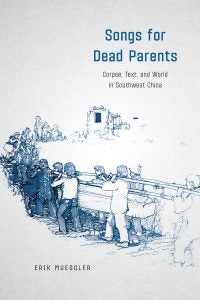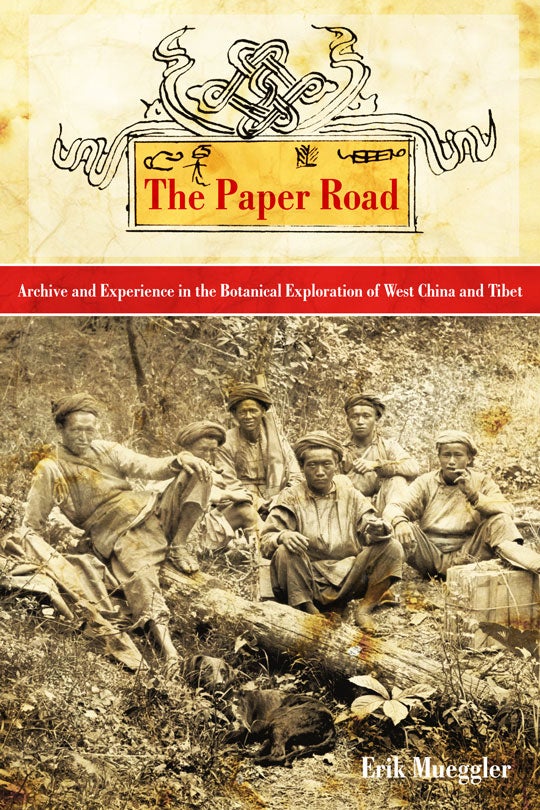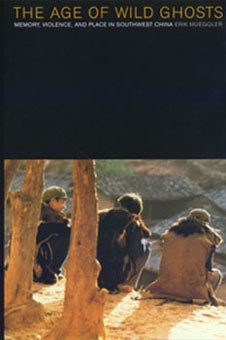I am Professor of Anthropology at the University of Michigan, affiliated with the University’s Center for Chinese Studies and the Interdepartmental Doctoral Program in Anthropology and History. My research covers a variety of topics in social and cultural theory, focusing on the politics of ghosts, the history of natural history, and the ritualization of death in the border regions of China.
 My latest book is Songs for Dead Parents: Corpse, Text and World in Southwest China (University of Chicago Press, 2017). Drawing on more than twenty years of fieldwork in a mountain community in Yunnan Province, Songs for Dead Parents shows how people view the dead as both material and immaterial, as effigies replace corpses, tombstones replace effigies, and texts eventually replace tombstones in a long process of disentangling the dead from the shared world of matter and memory. It is through these processes that people envision the cosmological underpinnings of the world and assess the social relations that make up their community. Thus, state interventions aimed at reforming death practices have been deeply consequential, and Mueggler traces the transformations they have wrought and their lasting effects.
My latest book is Songs for Dead Parents: Corpse, Text and World in Southwest China (University of Chicago Press, 2017). Drawing on more than twenty years of fieldwork in a mountain community in Yunnan Province, Songs for Dead Parents shows how people view the dead as both material and immaterial, as effigies replace corpses, tombstones replace effigies, and texts eventually replace tombstones in a long process of disentangling the dead from the shared world of matter and memory. It is through these processes that people envision the cosmological underpinnings of the world and assess the social relations that make up their community. Thus, state interventions aimed at reforming death practices have been deeply consequential, and Mueggler traces the transformations they have wrought and their lasting effects.
 The Paper Road: Archive and Experience in the Botanical Exploration of West China and Tibet (University of California Press, 2011), investigates relations between British and American botanists and their indigenous collaborators. In the first half of the twentieth century, Western botanists undertook an intensive exploration of western China, collected and named thousands of new species, shipped tens of thousands of specimens back to the Royal Botanic Gardens at Edinburgh and Kew, and introduced hundreds into cultivation in British gardens. By focusing on the relations of these explorers to the mountain inhabitants who worked as their guides, porters, and collectors, Mueggler explores this region as a place of multiple, experimental encounters amongst the world’s human and nonhuman inhabitants.
The Paper Road: Archive and Experience in the Botanical Exploration of West China and Tibet (University of California Press, 2011), investigates relations between British and American botanists and their indigenous collaborators. In the first half of the twentieth century, Western botanists undertook an intensive exploration of western China, collected and named thousands of new species, shipped tens of thousands of specimens back to the Royal Botanic Gardens at Edinburgh and Kew, and introduced hundreds into cultivation in British gardens. By focusing on the relations of these explorers to the mountain inhabitants who worked as their guides, porters, and collectors, Mueggler explores this region as a place of multiple, experimental encounters amongst the world’s human and nonhuman inhabitants.
 My first book, The Age of Wild Ghosts: Memory, Violence and Place in Southwest China (University of California Press 2001), explores the history of a minority community in Yunnan province in the last half of the twentieth century. The book shows how rural mountain people used resources of language and ritual to create a habitable place for themselves in the face of many, sometimes devastating, projects to bring modernity to them.
My first book, The Age of Wild Ghosts: Memory, Violence and Place in Southwest China (University of California Press 2001), explores the history of a minority community in Yunnan province in the last half of the twentieth century. The book shows how rural mountain people used resources of language and ritual to create a habitable place for themselves in the face of many, sometimes devastating, projects to bring modernity to them.
Currently, I am working on ethnographic projects in Yunnan and Sichuan provinces, on textuality, kinship, ritual, and the natural history of ice.
I have received various honors and awards, including a Macarthur Foundation fellowship, a a Center for the Advanced Studies in the Behavioral Sciences Fellowship, a British Academy Fellowship, and fellowships from the Wenner Gren Foundation for Anthropological Research, the Social Sciences Research Council, and the Woodrow Wilson Foundation.

